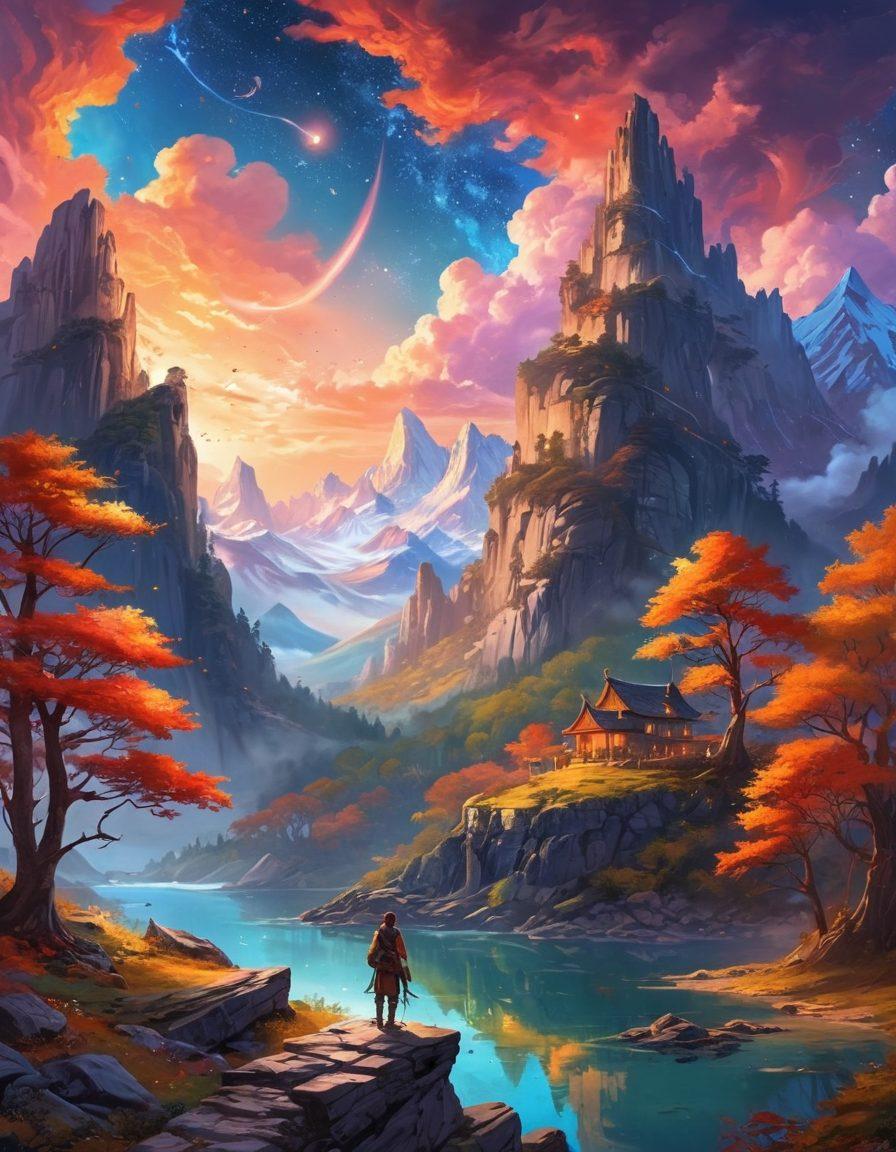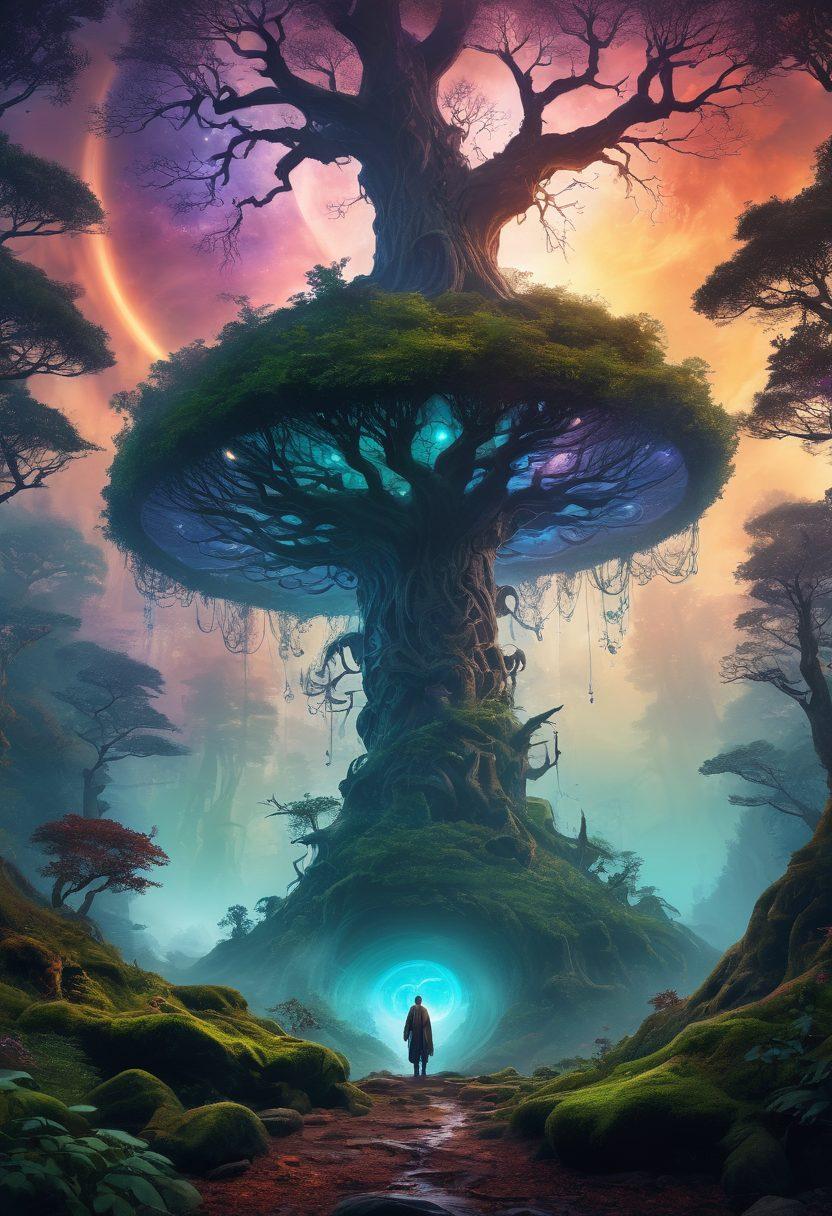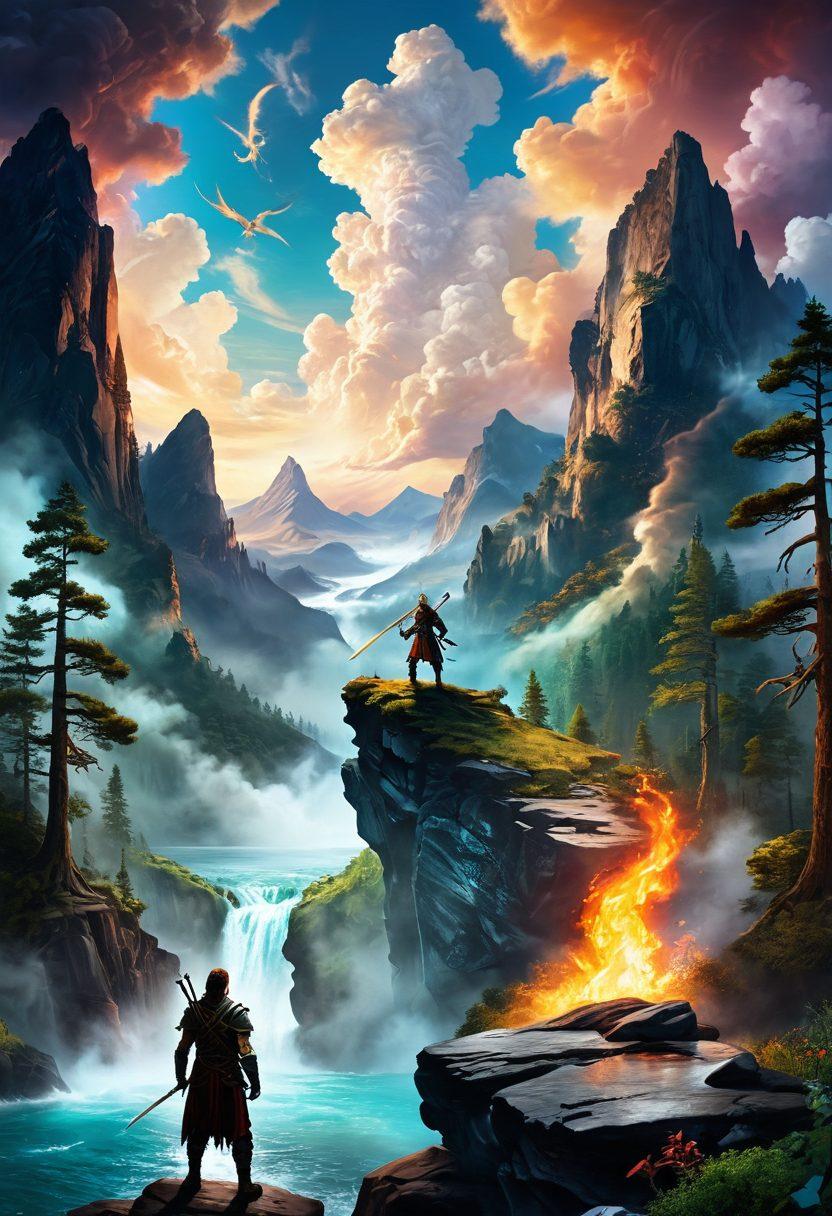Exploring the Mythic Realms: The Art of World-Building in Steven Erikson's Epic Fantasy
Imagine stepping into a realm where the boundaries of reality and imagination blur seamlessly. Where stories unfold under the watchful gaze of ancient gods, and every corner you turn reveals an enchanting layer of narrative depth. This is the world of Steven Erikson—a masterful novelist known for his epic fantasy literature that intertwines mythic storytelling with superb character development. As readers, we often find ourselves lost in the pages of Erikson's literary works, craving more of the rich tapestries he weaves, and the tales of adventure that echo through his saga of life and death.
At the heart of Erikson's craft is world-building. He doesn't just create a universe; he breathes life into it. Each land, creature, and civilization pulsates with history and complexity, which draws readers into an immersive experience that few can replicate. Erikson's expertise in creative writing shines through in his published books, particularly in his acclaimed series, Malazan Book of the Fallen. This high fantasy series exemplifies how world-building is not merely a backdrop but a character in itself, navigating the complexities of power, conflict, and morality in a grandiose narrative framework.
But how does Erikson accomplish such breathtaking world-building? The answer lies in his unique approach to narrative storytelling. He carefully intertwines mythological narratives steeped in historical resonance with speculative fiction elements. The worlds he creates often resemble our own, layered with familiar emotions and ethical dilemmas—yet they remain distinctly alien. What makes a world feel real? How does one craft an underworld teeming with heart-wrenching struggles and valor? Erikson does this by adding a touch of realism to the fantastical; reading his works feels as though you're watching humanity play out against a mythical backdrop, prompting readers to ponder their own moral compass in the process.
One striking aspect of Erikson's narrative craft is his emphasis on character development. The characters in his epic fantasy novels are intricate and flawed, reflecting the kaleidoscope of human experience. Erikson offers no clear heroes or villains; instead, he presents a spectrum of motivations and consequences that foster deep connections with his readers. As you journey alongside these characters, you find their struggles mirrored in your own life, which raises an intriguing question: how do we forge our identity in a world filled with chaos and uncertainty? Erikson delves into this theme, encouraging readers to explore their own narratives within the grand tapestry he provides.
As we peel back the layers of Erikson's worlds, we find ourselves immersed in not just tales of adventure but also profound insights into the human condition. The art of world-building, when done right, blesses us with stories that challenge our perspectives, evoke our emotions, and transport us to realms we could only dream of. So, whether you're a seasoned fan of fantasy literature or a newcomer curious about the allure of epic tales, the literary universe Steven Erikson has created invites you to step forward and explore. Ready your heart and mind, for adventure awaits in every beautifully crafted detail—because in Erikson's worlds, every story has a soul.
From Sagas to Sorcery: The Depth of Erikson's Narrative Strategies
In the sprawling universe of fantasy literature, few names resonate as profoundly as Steven Erikson. A renowned novelist, Erikson masterfully combines mythic storytelling with intricate world-building to create epic fantasy novels that whisk readers away into realms filled with adventure and intrigue. His published books, particularly the 'Malazan Book of the Fallen' series, showcase a depth of narrative craft that leaves a lasting impression on anyone who dares to delve into its pages. So, what sets Erikson apart in the realm of high fantasy and genre fiction? What makes his tales of adventure not just stories, but rich literary experiences?
At the heart of Erikson's literary works lies his unparalleled ability to weave complex sagas that are both engaging and thought-provoking. His narrative strategies often intertwine multiple character arcs, from noble heroes to morally ambiguous antiheroes, reflecting the multifaceted nature of humanity. This dynamic character development enables readers to establish a connection with the characters as they navigate treacherous landscapes, both physical and psychological. Have you ever found yourself rooting for a character you thought was beyond redemption? With Erikson, it’s an experience you’ll encounter more than once.
Erikson’s world-building is another key aspect that elevates his narrative storytelling. The intricate details he provides about various societies, their mythologies, and the rich histories that shape them invite readers into a grand tapestry of lore. From enchanted woods to dread-filled underworlds, every setting in Erikson's fantasy novels is not merely a backdrop — it serves a purpose in the overarching narrative, making the world feel alive and immersive. It's a testament to how creative writing can bring entire worlds to life! Anyone who has tackled challenges in their own fictional writing knows the importance of crafting a believable universe — Erikson makes it look effortless.
Moreover, Erikson's skill in crafting mythological narratives adds a layer of depth to his epic fantasy literature. He often draws on themes and elements from various cultures, integrating them into his stories in compelling ways. For lovers of speculative fiction, this fusion creates a rich realm where magic intertwines with the struggles of everyday existence, emphasizing the profound impact of history and mythology in our own lives. Can you recall a moment in a story where mythology made a connection to your personal experiences? Erikson's work often elicits that surprise contemplation, allowing readers to reflect long after they’ve finished reading.
Ultimately, when we explore the depths of Erikson's narrative strategies, we are reminded of the power of storytelling as both a medium of escape and self-reflection. His epic tales of sword and sorcery are not just attempts to entertain but delve into the core of our collective consciousness. As you journey through his epic fantasy literature, remember that every page turn unravels not just another chapter in a grand saga, but a chance to encounter the threads that bind us all together in this vast human experience. So, the next time you pick up one of Erikson’s books, ask yourself: what mythic realms am I about to explore, and what truths might they reveal about my own life?
Myth and Adventure: The Elements that Define Erikson's Epic Fantasy
In the realm of epic fantasy literature, few names stand out as prominently as Steven Erikson. This prolific novelist has a unique approach to storytelling that intertwines myth and adventure, creating a tapestry of fantasy novels that captivate readers and continue to inspire aspiring writers around the globe. With his published books, Erikson has crafted intricate worlds filled with complex characters and lore that draws upon a variety of mythological narratives. But what is it about Erikson's work that has cemented his status in the pantheon of fiction authors? Let’s embark on a journey through the critical elements of world-building and character development found in his literary works.
At the heart of Erikson's stories is the art of world-building, a craft that splices imagination with the echoes of historical and mythological sagas. In his saga, 'Malazan Book of the Fallen,' each setting—from verdant lands to desolate underworlds—feels alive with its own history and culture. Erikson invites readers to step into a world where magic is not merely an accessory but a force that shapes destinies. He famously claims, "Worlds exist outside of our perceptions, laden with stories waiting to be uncovered." This exploration of worlds that are intricately woven into the fabric of narrative storytelling captivates audiences while also challenging them to rethink the 'fantasy literature' genre. Could it be that the most engaging stories are those that allow us to explore new realities?
Character development in Erikson's novels is equally remarkable. Unlike many traditional fantasy narratives that center around a singular hero's journey, Erikson populates his worlds with a diverse cast—each driven by their own desires and moral compasses. Readers encounter warriors, mages, and even moral 'anti-heroes' whose growth is tightly interwoven with the fabric of the overarching tales of adventure. This narrative craft creates multiple threads that converge, providing depth to the ordinary and the extraordinary experiences of his characters. A question arises, then: How do these varied perspectives transform the way we understand heroism and companionship?
Mythical storytelling in Erikson's works is where past and present collide. The echoes of ancient tales resonate through the pages, reflecting deeper truths about humanity, conflict, and the tragic beauty of existence. Erikson seamlessly integrates motifs of power, betrayal, and redemption that hark back to ancient myths, enabling readers to find parallels in their own lives. His ability to craft stories that transcend mere entertainment speaks to the essential purpose of speculative fiction: to reflect on society, to tell tales that make us ponder our realities. As Erikson himself says, “All stories are metaphorical tools, digging into the hearts of humanity.” Isn’t that a reminder of why we fall in love with these worlds and their inhabitants?
Lastly, one cannot ignore the sheer ambition behind Erikson's narrative structure. His work often combines elements of high fantasy with sword and sorcery, creating a distinct juxtaposition that is rich in conflict and intrigue. With his vast network of characters and plotlines, he crafts a whirlpool of events that are daunting yet captivating. The stakes are high, and as readers, we immerse ourselves in questions of destiny and free will, amplified by Erikson’s profound prose. It prompts us to wonder: How do the myths we create shape our adventures and our very existence in this world? By recognizing the elements of myth and adventure that define Erikson's epic fantasy, we become not just spectators of his work but active participants in the unfolding story of human imagination.


